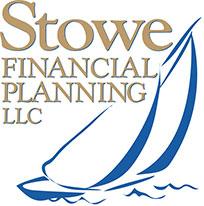FAQ’s – Based on NAPFA’s ‘Tough Questions to ask a Planner’
BACKGROUND & EXPERIENCE
1. What is your educational background?
College degree – Bachelor of Science, United States Naval Academy,
Graduate degree – MBA, Southern Methodist University,
Professional - Certified Financial Planner (CFP) program, College for Financial Planning.
2. What are your financial planning credentials/designations and affiliations?
Bob Stowe,CFP®, NAPFA Registered Advisor, Financial Planning Association.
- NAPFA-Registered Financial Advisor — (60 hours continuing education every 2 years)
- CERTIFIED FINANCIAL PLANNER TM professional — (30 hours continuing education every 2 years)
- Financial Planning Association (FPA) — (continuing education not required)
3. How long have you been offering financial planning services?
Since 2001.
4. Do you have clients who might be willing to speak with me about your services?
No – Primarily confidentiality, but as educated as our clients are regarding the planning process, we feel that we are better able to explain the scope and value of our services. We are happy to educate the prospective client with referrals from other professionals and research from the regulatory groups the oversee financial planners.
View our Stowe Financial Planning Privacy Policy.pdf for more detail.
5. Will you provide me with references from other professionals?
Yes, on request.
6. Have you ever been cited by a professional or regulatory governing body for disciplinary reasons?
No.
7. Describe your financial planning work experience or attach your resume.
I began as an independent, and have had my own firm since 2001. See my website for more information. This information is available in the ADV Part II.
BUSINESS PRACTICE
8. How many clients do you work with?
I have worked with over 150 clients, but am currently filling a smaller practice with clients who value the planning process, desire a long term relationship and rely on an investment expert to manage the investment process.
9. Are you currently engaged in any other business, either as a sole proprietor, partner, officer, employee, trustee, agent or otherwise? (Exclude non-investment related activities which are exclusively charitable, civic, religious or fraternal and are recognized as tax-exempt.)
No.
10. Will you or an associate of yours work with me?
Both, but I handle most client contact, and generally even answer the phone if I am available.
11. Will you sign the Fiduciary Oath below?
Yes, a signed copy is in my reception area.
FIDUCIARY OATH
The advisor shall exercise his/her best efforts to act in good faith and in the best interests of the client. The advisor shall provide written disclosure to the client prior to the engagement of the advisor, and thereafter throughout the term of the engagement, of any conflicts of interest which will or reasonably may compromise the impartiality or independence of the advisor. The advisor, or any party in which the advisor has a financial interest, does not receive any compensation or other remuneration that is contingent on any client’s purchase or sale of a financial product. The advisor does not receive a fee or other compensation from another party based on the referral of a client or the client’s business.
12. Do you have a business continuity plan?
Yes, this is a requirement of all NAPFA advisors, an elite and highly ethical group.
COMPENSATION
Financial planning costs include what a client pays in fees and commissions. Comparison between advisors requires full information about potential total costs. It is important to have this information before entering into any agreement.
13. How is your firm compensated and how is your compensation calculated?
SFP is a Fee-Only planning firm. Fees are based on the scope of the engagement and the size of the investment assets. I provide a fee for service at the complimentary first meeting.
14. Do you have an agreement describing your compensation and services that will be provided in advance of the engagement?
Yes, my ADV Part II, the SEC required document, is available online and by request.
Do you have a minimum fee?
The minimum fee for a financial plan is $2500, but most plans cost more (the financial plan fee may be waived for clients considering Assets Under Management). The minimum asset requirement for new clients is $500,000, but in some circumstances a lower amount is acceptable. It is common that this is a 401k that will soon be rolled into an IRA.
15. Does any member of your firm act as a general partner, participate in, or receive compensation from investments you may recommend to me?
No.
16. Do you receive referral fees from attorneys, accountants, insurance professionals, mortgage brokers, or others?
No.
17. Do you receive on-going income from any of the mutual funds that you recommend in the form of “12(b)1″ fees, “trailing” commissions, or other continuing payouts?
No.
18. Are there financial incentives for you to recommend certain financial products?
No.
SERVICES
Financial planners provide a range of services. It is important to match client needs with services provided.
19. Do you offer advice on: (check all that apply)
I provide financial planning and investment management services.
20. Do you provide a comprehensive written analysis of my financial situation and recommendations?
Yes, everyone must have a financial plan as the prior to implementing any investments.
21. Does your financial planning service include recommendations for specific investments or investment products?
Yes, I recommend a completely diversified portfolio of low-cost index and passive mutual funds, cash and other instruments as appropriate for your situation.
22. Do you offer assistance with implementation with the plan?
Of course, I will see you through to the successful implementation of your plan.
23. Do you offer continuous, on-going advice regarding my financial affairs, including advice on non-investment related financial issues?
Yes.
24. Do you take custody of, or have access to my assets?
No. You would be required to open an investment account at Fidelity Institutional Brokerage, but you alone can move funds into or out of that account. My access is limited to viewing it and placing trades on your behalf.
25. If you were to provide me on-going investment advisory services, do you require “discretionary” trading authority over my investment accounts?
No. I would be allowed, subject to your discretion, to make trades on your behalf. I would seek approval from you prior to making trades in the account.
REGULATORY COMPLIANCE
Federal and state laws require that, under most circumstances, individuals or firms holding themselves out to the public as providing investment advisory services are required to be registered with either the U. S. Securities & Exchange Commission (SEC) or the regulatory agency of the state in which the individual/firm conducts business. I (or my firm) is registered as an Investment Advisor With the state of Texas Please provide your Form ADV Part II or brochure being used in compliance with the Investment Advisors Act of 1940. If not registered with either the SEC or any state, please indicate the allowable reason for non-registration. Available at the first meeting, or I can mail a copy on request. Bob Stowe, CFP® Stowe Financial Planning, LLC www.stowefinancialplanning.com Please Note: A yes or no answer requiring explanation is not necessarily a cause for concern. We encourage you to give the advisor an opportunity to explain any response. This form was created by the National Association of Personal Financial Advisors (NAPFA) to assist consumers in selecting a personal financial planner. It can be used as a checklist during an interview or sent to prospective planners as a part of a preliminary screening. NAPFA recommends that individuals from at least two different firms be interviewed.

